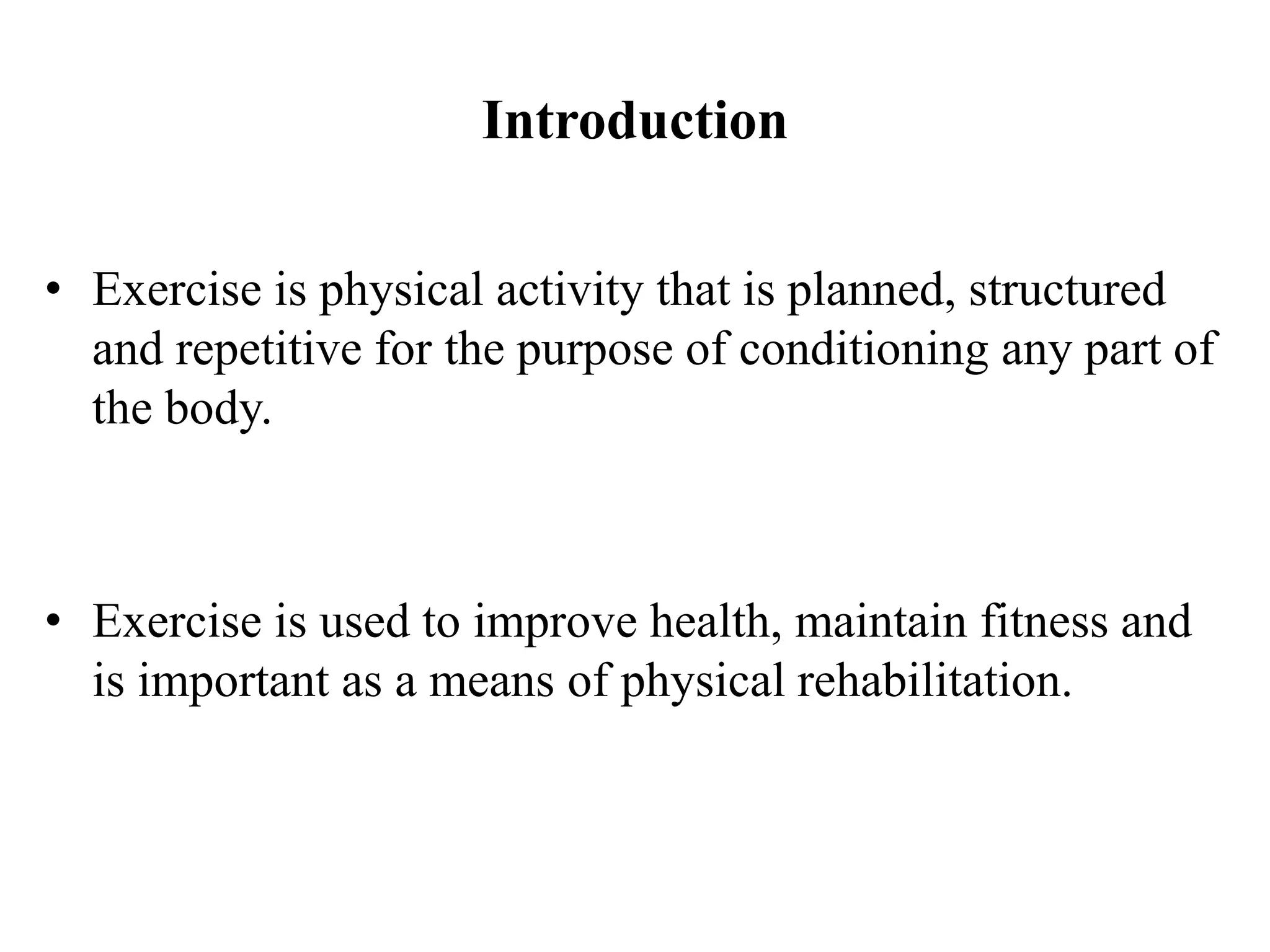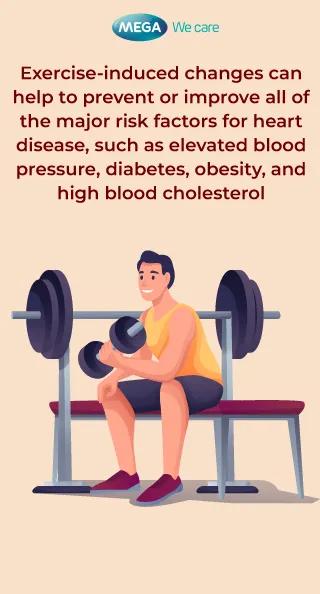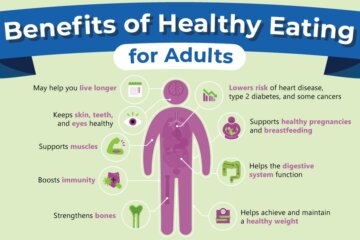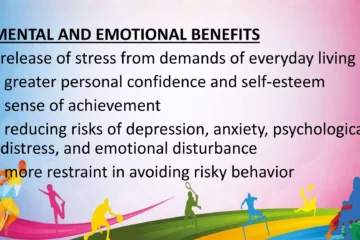“Why is Exercise Important for Cardiovascular Health?”
Have you ever wondered how a simple habit like exercise can make a huge difference to your heart? Your heart works nonstop, pumping blood to keep you alive and active every single day.
But without the right care, it can become weak and tired. The good news is that by adding some exercise into your routine, you can protect your heart and boost your overall health. You’ll discover exactly why exercise is a powerful tool for your cardiovascular health—and how it can help you live a longer, stronger life.
Keep reading to find out how easy changes can lead to big heart benefits you won’t want to miss.

Credit: www.megawecare.com
Heart Health And Exercise
Exercise plays a key role in keeping the heart healthy. The heart is a muscle, and like all muscles, it gets stronger with regular use. Moving the body through activities like walking, cycling, or swimming helps the heart work better. This makes everyday tasks easier and lowers the risk of heart disease.
Regular exercise also helps control weight, blood pressure, and cholesterol. These factors affect heart health. Staying active can reduce the chances of heart attacks and strokes. It also improves overall energy and mood.
How Exercise Strengthens The Heart
Exercise makes the heart pump more blood with each beat. This means the heart does not have to work as hard when at rest. Over time, the heart muscle grows stronger and more efficient.
A strong heart pumps blood faster and with more force. This helps deliver oxygen and nutrients to the whole body quickly. Exercise also helps the heart recover faster after physical activity.
Impact On Blood Circulation
Exercise improves blood flow throughout the body. It helps clear blockages in blood vessels and keeps them flexible. Good circulation lowers the risk of heart problems.
Active muscles need more oxygen-rich blood. Exercise makes blood vessels expand and carry more blood. This helps reduce blood pressure and supports healthy blood vessels.

Credit: www.megawecare.com
Reducing Cardiovascular Risks
Exercise plays a key role in lowering risks linked to heart disease. It helps keep the heart and blood vessels strong and healthy. Regular physical activity improves how the body handles blood flow and pressure. It also helps control factors that increase heart disease risk.
Small changes, like walking or light jogging, can make a big difference. Exercise supports the body in keeping vital numbers balanced. This balance reduces strain on the heart and cuts down chances of heart problems.
Lowering Blood Pressure
Exercise helps relax blood vessels. This relaxation lowers the pressure inside them. Lower blood pressure means the heart does not work too hard. Regular workouts can reduce both systolic and diastolic blood pressure. Keeping blood pressure in a healthy range lowers the risk of stroke and heart attacks.
Managing Cholesterol Levels
Physical activity raises good cholesterol (HDL) in the blood. Good cholesterol removes bad cholesterol (LDL) from arteries. Less bad cholesterol means fewer blockages in blood vessels. Exercise also lowers triglycerides, another fat linked to heart disease. Balanced cholesterol levels protect the heart and improve blood flow.
Controlling Blood Sugar
Exercise helps the body use insulin better. This keeps blood sugar levels stable. Stable sugar levels reduce damage to blood vessels. Controlling blood sugar lowers the risk of diabetes, a major heart risk. Active muscles burn sugar, helping to keep the heart safe.
Weight Management And Heart Health
Weight management plays a key role in maintaining heart health. Excess weight puts extra strain on the heart and blood vessels. Exercise helps control weight by burning calories and building muscle. Healthy weight reduces the risk of many heart-related problems.
Role Of Exercise In Fat Loss
Exercise burns calories and reduces body fat. It helps shrink dangerous fat around the organs. This fat increases the risk of heart disease. Regular physical activity improves metabolism and promotes fat loss. Even moderate exercise can make a big difference.
Preventing Obesity-related Heart Issues
Obesity causes high blood pressure and high cholesterol. These conditions harm the heart and arteries. Exercise lowers blood pressure and improves cholesterol levels. It also helps control blood sugar, reducing diabetes risk. Staying active helps prevent obesity and protects the heart.
Improving Vascular Function
Improving vascular function is a key benefit of regular exercise for heart health. Healthy blood vessels ensure smooth blood flow and lower the risk of heart problems. Exercise helps keep arteries flexible and reduces harmful inflammation. These effects protect the cardiovascular system and boost overall well-being.
Enhancing Artery Flexibility
Exercise helps arteries stay flexible and strong. Flexible arteries can widen easily to allow more blood flow. This reduces blood pressure and helps the heart work less hard. Activities like walking, jogging, or cycling improve artery elasticity. Better artery flexibility lowers the chance of heart disease.
Reducing Inflammation
Inflammation in blood vessels can cause damage and blockages. Exercise lowers harmful inflammation by improving the immune system. Regular physical activity reduces markers of inflammation in the body. Less inflammation means healthier blood vessels and a lower risk of heart attacks. Moving your body helps keep your heart safe.
Exercise Types For Cardiovascular Benefits
Exercise plays a key role in keeping the heart and blood vessels healthy. Different types of exercise offer unique benefits for cardiovascular health. Choosing a mix of exercises can improve heart strength, blood flow, and overall wellness.
Each exercise type targets the heart in a special way. Some focus on endurance, others on muscle strength, or body control. Together, they create a balanced fitness routine that supports a healthy heart.
Aerobic Workouts
Aerobic exercise raises the heart rate and keeps it elevated. Activities like walking, running, cycling, and swimming fall into this category. These workouts improve heart and lung function. They help lower blood pressure and reduce bad cholesterol.
Regular aerobic exercise strengthens the heart muscle. This makes the heart pump blood more efficiently. It also helps control weight and reduces the risk of heart disease.
Strength Training
Strength training builds muscle and supports strong bones. Using weights or resistance bands is common. This type of exercise improves metabolism and helps maintain a healthy weight.
Stronger muscles assist the heart by easing the work of daily activities. Strength training also helps lower blood pressure. It can improve blood sugar control, which benefits heart health.
Flexibility And Balance Exercises
Flexibility exercises improve joint movement and reduce injury risk. Yoga and stretching routines help maintain muscle length and balance. These exercises support better posture and relaxation.
Balance exercises prevent falls and improve body coordination. They help keep the body stable and strong. A flexible, balanced body supports overall cardiovascular health by enabling consistent physical activity.
Mental Health And Heart Wellness
Mental health and heart wellness are closely connected. Stress and anxiety affect the heart’s health. Exercise helps by calming the mind and improving mood. Physical activity supports the heart by reducing harmful stress levels.
Regular exercise also boosts brain chemicals that make you feel good. This improves emotional balance and helps keep the heart strong. Simple workouts can lead to better mental health and a healthier heart.
Stress Reduction Through Exercise
Exercise lowers stress hormones like cortisol. It also increases endorphins, natural mood boosters. This reduces tension and helps the heart work better. Even short walks can ease stress and protect the heart.
Improving Sleep Quality
Good sleep is vital for heart health. Exercise helps you fall asleep faster and sleep deeper. Restful sleep lowers blood pressure and reduces heart disease risks. A calm mind and body support both mental and heart wellness.
Exercise Guidelines For Heart Health
Exercise is a key part of keeping the heart healthy. It helps strengthen the heart muscle and improve blood flow. Following clear exercise guidelines can protect the heart and lower the risk of heart disease. These guidelines help balance effort and rest for the best heart benefits.
Knowing how often and how long to exercise is important. Also, beginners need to be careful to avoid injury or strain. Simple steps can make exercise safe and effective for everyone.
Recommended Frequency And Duration
Experts suggest at least 150 minutes of moderate exercise each week. This can be divided into 30 minutes, five days a week. Moderate exercise means activities like brisk walking or cycling. For more benefits, 75 minutes of vigorous exercise is enough. Vigorous exercise includes running or swimming fast. It is good to include muscle-strengthening activities twice a week. These habits help improve heart health steadily and safely.
Safety Tips For Beginners
Start slow and increase exercise time gradually. Begin with light activities like walking or stretching. Stop if you feel pain, dizziness, or shortness of breath. Wear comfortable shoes and clothes to prevent injuries. Drink water before, during, and after exercise to stay hydrated. Talk to a doctor before starting a new exercise plan, especially with health issues. These tips help build a safe and lasting routine.

Credit: www.slideshare.net
Frequently Asked Questions
What Are The Benefits Of Exercise For Heart Health?
Exercise strengthens the heart muscle, improving its efficiency. It lowers blood pressure, reduces bad cholesterol, and boosts good cholesterol. Regular exercise also helps control weight and reduces the risk of heart disease and stroke.
How Often Should I Exercise For Cardiovascular Health?
Aim for at least 150 minutes of moderate aerobic exercise weekly. This can be split into 30 minutes over five days. Consistency is key to maintaining heart health and reducing cardiovascular risks.
Can Exercise Prevent Heart Disease Effectively?
Yes, regular exercise lowers risk factors like high blood pressure and obesity. It improves blood circulation and heart function. Active people are less likely to develop heart disease than inactive individuals.
What Types Of Exercise Improve Cardiovascular Health?
Aerobic activities like walking, running, cycling, and swimming are best. These exercises increase heart rate and improve blood flow. Strength training also supports heart health by building muscle and aiding metabolism.
Conclusion
Exercise helps keep your heart strong and healthy. It lowers the risk of heart problems. Regular activity improves blood flow and reduces bad cholesterol. It also controls blood pressure and helps maintain a healthy weight. Small daily steps add up to big benefits.
Everyone can find a way to move more. Your heart will thank you for it. Stay active and enjoy a healthier life. Simple habits make a real difference. Start today and keep your heart happy.

“As the voice behind Radiant Glow Health, we are dedicated to being your ultimate wellness and vitality companion. Our mission is to inspire and guide you on your journey to a healthier and more vibrant life. Join us as we explore holistic health practices and empower you to radiate wellness from within.”



